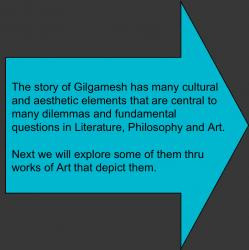Elizabeth Burzinski
I'm a Liberal Arts student at University of Massachusetts Lowell and my concentration areas are Art History and Psychology. I'm currently enrolled in ART HISTORY, MUSIC & CULTURE ARHI.3000-061 with Prof. Julie Sawyer. I like Art in all its breadth and depth, from classical to digital, in particular impressionism and surreal paintings, and music from Mozart to Chilly Gonzales. I also interested in exploring how many original aesthetic and cultural existential elements in Ancient Art are closely connected to many dilemmas and foundational questions in modern Literature, Philosophy and Art.
Elizabeth Burzinski's collections
Existentialism and the Absurd in Art and Culture Across Time
 Elizabeth Burzinski
Elizabeth Burzinski


